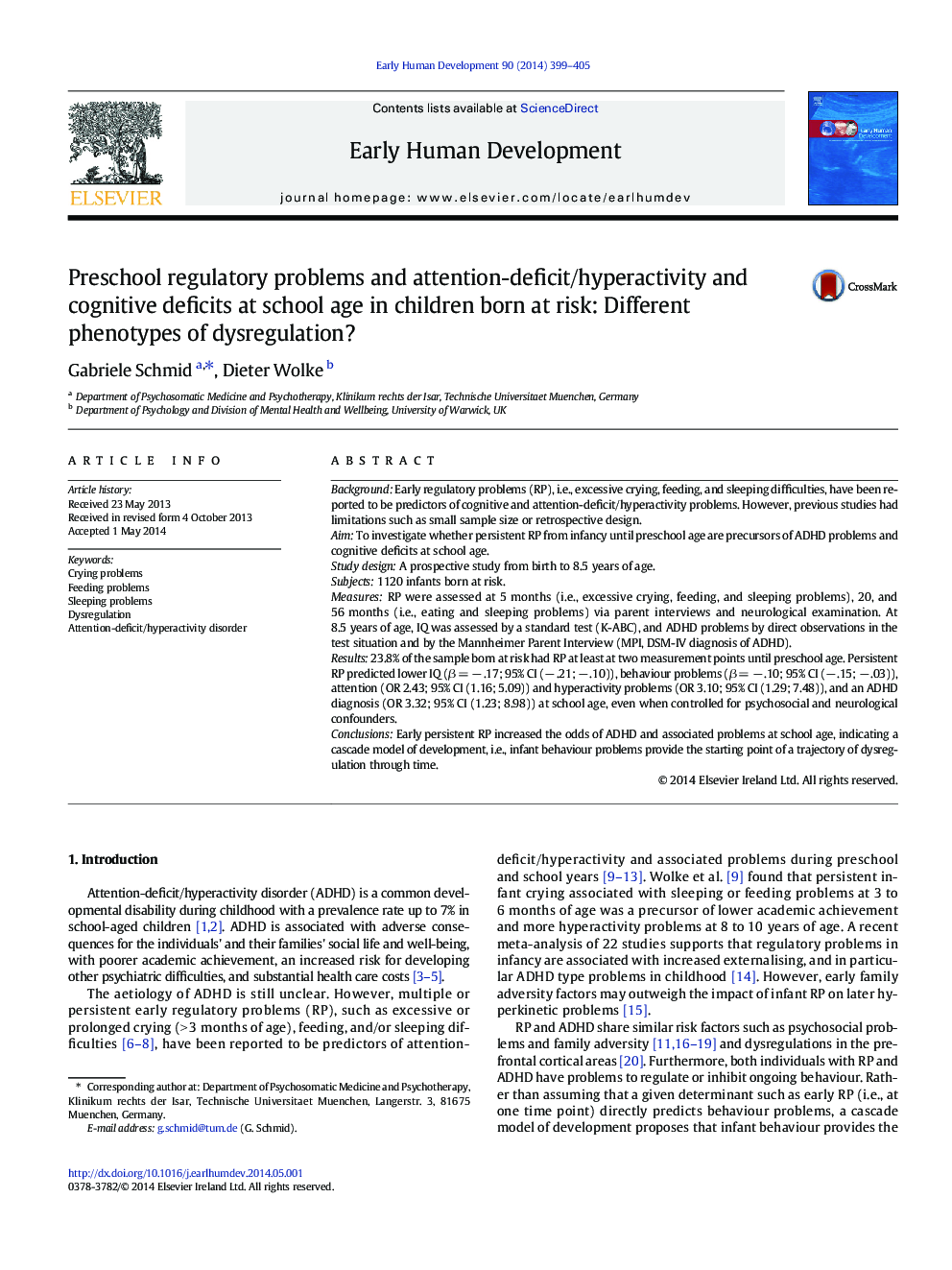| Article ID | Journal | Published Year | Pages | File Type |
|---|---|---|---|---|
| 3916527 | Early Human Development | 2014 | 7 Pages |
BackgroundEarly regulatory problems (RP), i.e., excessive crying, feeding, and sleeping difficulties, have been reported to be predictors of cognitive and attention-deficit/hyperactivity problems. However, previous studies had limitations such as small sample size or retrospective design.AimTo investigate whether persistent RP from infancy until preschool age are precursors of ADHD problems and cognitive deficits at school age.Study designA prospective study from birth to 8.5 years of age.Subjects1120 infants born at risk.MeasuresRP were assessed at 5 months (i.e., excessive crying, feeding, and sleeping problems), 20, and 56 months (i.e., eating and sleeping problems) via parent interviews and neurological examination. At 8.5 years of age, IQ was assessed by a standard test (K-ABC), and ADHD problems by direct observations in the test situation and by the Mannheimer Parent Interview (MPI, DSM-IV diagnosis of ADHD).Results23.8% of the sample born at risk had RP at least at two measurement points until preschool age. Persistent RP predicted lower IQ (β = − .17; 95% CI (− .21; − .10)), behaviour problems (β = − .10; 95% CI (− .15; − .03)), attention (OR 2.43; 95% CI (1.16; 5.09)) and hyperactivity problems (OR 3.10; 95% CI (1.29; 7.48)), and an ADHD diagnosis (OR 3.32; 95% CI (1.23; 8.98)) at school age, even when controlled for psychosocial and neurological confounders.ConclusionsEarly persistent RP increased the odds of ADHD and associated problems at school age, indicating a cascade model of development, i.e., infant behaviour problems provide the starting point of a trajectory of dysregulation through time.
